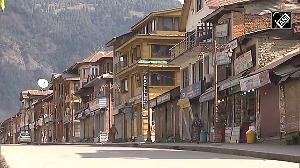Vatsala Mendonca's novel When God Died was released at the Yacht Club in Mumbai last month. Glimpses from the event:

Ajit Balakrishnan's opening remarks introducing the novel to the audience:
This is the story of Maria Isabella de Furtado set in the 17th century, but has relevance to our current 21st century lives.
Maria's struggles, as I see, is not unlike the struggles that many women even in our times have to endure.
Maria was born to an aristocratic Portuguese family, but that again, instead of that making her powerful, makes her the target of many swirling waves.
The author, in recounting Maria's struggle, constantly draws parallels with the life of another Portuguese aristocratic girl that all of us Mumbaikars have heard about: Catarina de Braganca who carried as her dowry to Charles II of England, the seven islands of Bombay.
Maria is sent off to Goa to be married the same year, as it happens, that Catarina was sent off to England.

Maria's story has bearing on it the many conflicts and pressure of that era: Colonialism's hand is everywhere. People are allocated work as slaves or masters based on their racial origin and not their work ability.
Women are assigned clearly to their duty of bearing children to look after their male partners. Men were free to openly enjoy their lives with several mistresses.
Slaves from Africa, brought to Goa by the Portuguese intermarry with local Goans. The lingua franca is Portuguese, Konkani and even English. The Catholic Church and its bishops and priests are also active players in the struggle for power and wealth.
And, above all, a patriarchal society where women are expected to be submissive to men.

Dona Maria (let me out of respect for Maria add that prefix) gamely and quietly struggled through the many complex challenges that life throws at her and finds a solution to her challenges in the end.... just like Catarina de Braganca did.

In narrating the Maria story, the author, in the tradition of Margaret Atwood's A Handmaiden's Tale, Sandra Cisneros' The House on Mango Street and Arundathi Roy's The God of Small Things, places the protagonist challenges within the context of class and caste and religious and, most of all, patriarchal conflicts and ultimately finds strength and hope, inspiring readers to pursue their dreams and carve their own paths.
Feature Presentation: Ashish Narsale/Rediff.com











 © 2025
© 2025